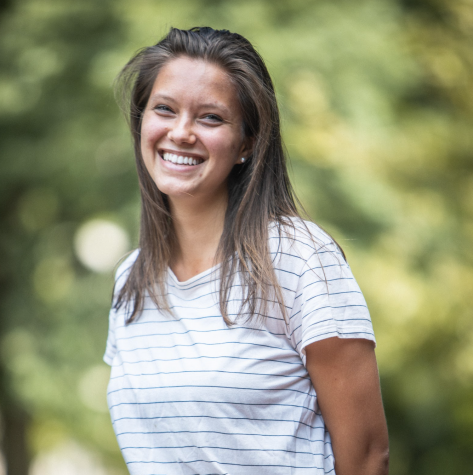One year ago, Kavita Prasad was a senior at Vanderbilt, studying for neuroscience exams, participating in her sorority, and eating with friends in the Gulch. Today she’s working as a medical scribe in San Francisco and applying to medical schools across the country. But while some alumni pay to engrave their names on benches or buildings, Prasad is leaving her mark on Vanderbilt in a different way: by giving back directly to the students through the nonprofit Milaana.
Milaana, an organization Prasad started in 2018, serves Vanderbilt students who can’t afford academic essentials like textbooks and laptops. Students can apply to post their story on Milaana’s website, and donors can designate their gift for a specific student or for a general fund.
In August 2018, Milaana attained 501 3(c) status, enabling donors to report donations to the nonprofit as tax-deductible. Milaana received sponsorship from the umbrella organization Institution for Education, Research, and Scholarship (IFERS), and thus far, it has raised roughly $2,500 for Vanderbilt students in need.
The idea for Milaana originated in January 2018 in a neuroscience class when Prasad’s professor, Dr. Leslie Smith, mentioned a current student who could not afford a laptop. This student, Smith said, used the library computers instead, but struggled because of the library’s limited hours and because they couldn’t store anything on the computer’s hard drive.
This student’s story of financial difficulty stuck with Prasad. Soon afterwards, she spoke with her parents, and they decided to donate money to buy a laptop. Prasad herself coordinated with Smith to make sure the laptop reached the student in need.
The experience of providing this first laptop inspired Prasad to develop a nonprofit for other students in similar situations. She decided to call it “Milaana,” which means “to bring together” in Hindi.
With Smith’s help, Prasad sent out a questionnaire to see how many Vanderbilt students would be interested in applying to post their stories on Milaana. She received 25 responses and immediately began work to make her idea a reality.
One year later, Milaana has raised enough donations to provide another Vanderbilt student with a laptop.
“The laptop donation was really empowering,” that student wrote to Prasad. “Now that I have the tools I needed to succeed, I’ve been feeling like nothing can really stop me now.”
Currently, Milaana only serves Vanderbilt students, but Prasad says she dreams of expanding to serve students from other universities in the future. In the meantime, her next big goal is to start a student organization on Vanderbilt campus, which will locate students in need and advertise to parents and alumni more effectively.
“This is a need that many people don’t know about,” Prasad said. “There are a lot of well-off Vanderbilt families and I’m sure if they knew that students just like their kids were struggling, they would be willing to donate.”
Just a few days ago, Prasad notified one Vanderbilt student, a pre-med student from Atlanta, GA, that she would receive funds from Milaana.
This student plans to use the donation to buy textbooks for this semester. Too few people understand what struggling financially at Vanderbilt is like, she said. Furthermore, Vanderbilt does have resources to help students struggling financially, but the university needs to advertise these programs better, especially to first year students, she said.
Dr. David Zald, Director of the Undergraduate Neuroscience Program, who helped advise Milaana’s development, agreed.
“As a faculty member, it’s painful to see if there’s a student who’s really committed to being a good student,” Zald said, “and yet the other issues are getting in the way.”
Vanderbilt is making critical strides towards financial inclusivity through their generous financial aid packages and the minimization of student loans, he said. However, some things still slip through the cracks.
“To me, the primary concern has been around the edges, where it’s these little things that sometimes can prove really challenging,” Zald said. “And there hasn’t been a natural mechanism thus far within the university to capture those little, short-term needs that can come up and, in fact, be really critical for a student’s success.”



